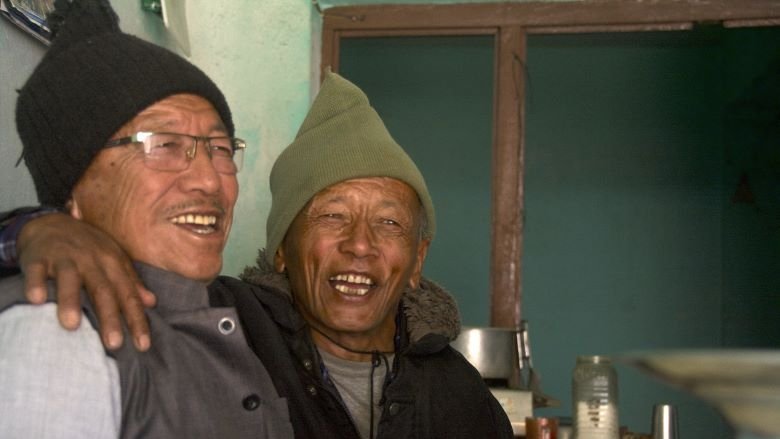Brothers Khil Bahadur, 73, and Dil Bahadur Khadka, 71, grew up in Chappeli Danda of Lalitpur, and have spent all their lives here.
Despite being situated in Lalitpur, which is also host to the fourth among six biggest metropolitan cities of Nepal, Chappeli is still rural.
Dil Bahadur lives in the hill near Chhapeli Bazar, where he is involved in agriculture and goat farming. Khil Bahadur has a small tea shop nearby. Both say that their income is just enough for subsistence.
That is why the senior citizen allowance of Rs. 4000 (approx. $30) per month is important for their livelihoods. The amount is mainly spent on daily expenses, as well as medical bills. Especially, elder brother Khil Bahadur has asthma and the treatment cost comes to around Rs. 800 ($6.13) every month.
Younger brother Dil Bahadur says he is healthy, but his wife has asthma. Besides medical expenses, the allowance is spent on minor household necessities and stationery for their grandchildren. “It's such a pleasure to be able to buy things for my grand-kids,” Dil Bahadur shares.




